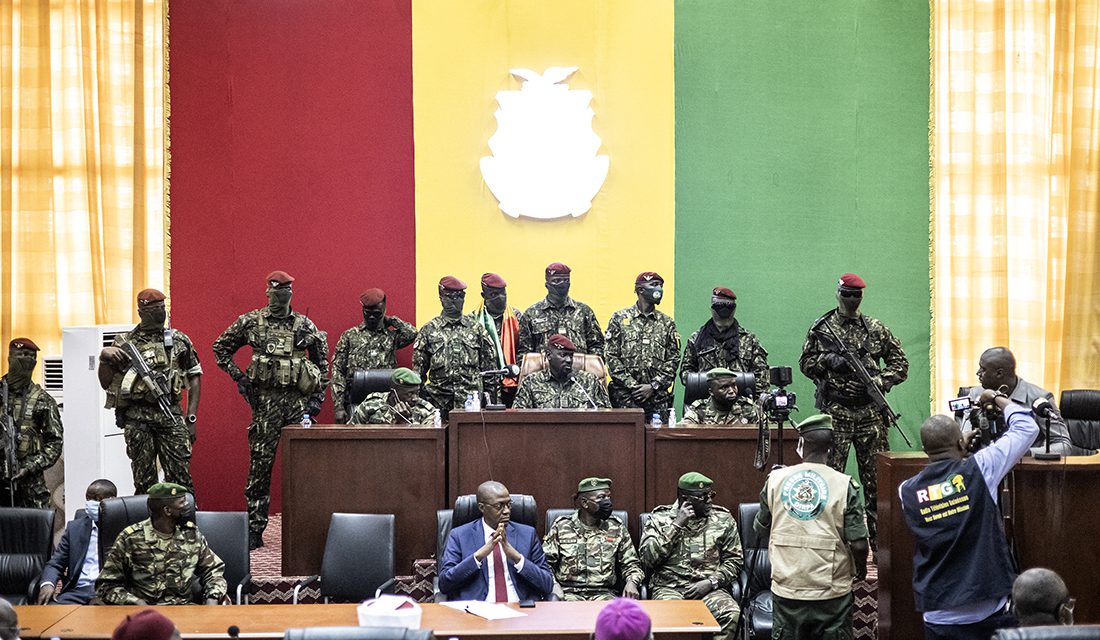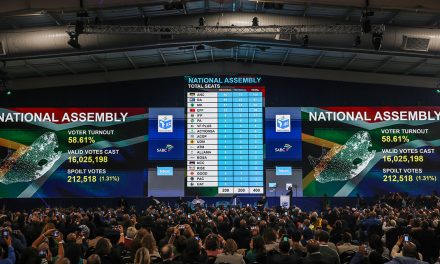Since the 5 September 2021 coup d’état in Guinea, there has been a sharp interest in coup d’états in general and on the African continent in particular, renewed in part by an array of political and media commentators. Research by the African Development Bank found that there have been more than 200 coups in Africa since the post-independence era of the 1960s, with 45% of them being successful insofar as they led to the formation of a new government structure. According to the research carried out over three periods: 1960-1969; 1970-1989; and 1990-2012, West Africa experienced the greatest number of coups. Central and East Africa followed, while Southern Africa had the least.
A reason for the recent resurgence of coup frequency may partly be explained as a consequence of the failure of democracy in Africa. When interviewed about his understanding of democracy, a current president stated, “Democracy is like water it takes on many shapes and forms. You can’t expect me to bath in ice.” Herein lies the problem. Democracy is a contested concept and tends to be applied through various interpretations and different measures according to the interests of incumbent political elites. This uneven approach may in certain circumstances lead to discontent among the electorate.
According to scholar Emma Birikorang, a democratic regime can be defined as one where:
- There is meaningful and extensive competition at regular intervals among individuals and organised groups for all effective positions of government power, and without the use of force.
- A highly inclusive level of political participation exists in the selection of leaders and policies, such that no major (adult) social group is excluded.
- A sufficient level of civil and political liberties exists to ensure the integrity of political competition and participation.
To the contrary, an authoritarian regime can be defined as one where little or no meaningful political competition or freedom exists for the citizenry, which tends to be the incubator on the spectrum for potential coups.
Over the past year we have witnessed several attempted coups in West Africa:
- On 31 March 2020, an attempted coup was averted in Niger.
- In April 2021, following the death of Chad’s President Idriss Déby, the military swiftly took power and installed his 37-yeard-old son rather than adhering to the constitutional stipulation that the head of the National Assembly assume provisional presidential powers.
- On 18 August 2020 and 24 May 2021, Mali experienced two coups within a year, the first of which removed President Ibrahim Boubacar Keïta from power during his second term.
While there has been strong condemnation regarding the Guinea coup, some coups appear to have been deemed more acceptable, which raises questions:
- The Congo coup of 1960 saw Patrice Lumumba, the first Prime Minister of the Congo (later the Democratic Republic of the Congo), was forced out of office by Congolese President Joseph Kasavubu amid the US-supported Belgian military intervention in the country. The support took the form of a violent effort to maintain Belgian business interests after the country’s decolonization. After Lumumba approached the Soviet Union for supplies, he was targeted by the CIA who determined he was a threat to the newly installed government of Joseph Mobutu. Lumumba was captured in late 1960 and killed in January
- The Mauritania coup of August 2005 highlighted a sense of reluctance and muted condemnation from the African Union (AU) because of accusations that had been directed at the previous regime for contravening international norms of human rights and good governance. The lack of strong condemnation and action may have emboldened the same coup plotters to launch a second coup in August 2008.
- In March 2009, the then Chairman of the African Union, Colonel Muammar Gaddafi, suggested that sanctions imposed on Mauritania should be lifted based on coup leaders’ promises to hold elections in June 2009. President Abdoulaye Wade of Senegal was of the same opinion and opposed the AU’s proposed application of sanctions against Mauritania.
- President Wade also stood against the suspension of Guinea from the AU after the coup in December 2008.
- Following the unconstitutional handover of power in Chad in April 2021, the AU Peace and Security Council (PSC) failed to impose sanctions or suspend the country from the AU, while France and the US (longtime supporters of Déby as a key ally in the fight against terrorism in the region) only weighed in and called for calm after security forces killed several protestors.
- The Zimbabwe November 2017 coup-that-was-not-a-coup, which ultimately led to former President Robert Mugabe’s resignation. A new coup approach was demonstrated – there were no street curfews, no violent crackdowns, no appointment of a military junta to take control of the levers of power. Rather, we saw Mugabe casually chatting with his captors the same military leaders who forced his resignation, while protesters posed for selfies with soldiers. Maybe because of this, the coup-that-was-not-a-coup confused regional, continental, and international bodies into muted condemnation.
- In recent years, we have experienced a new phenomenon – coup metamorphosis – which takes place during mass uprisings, as in Algeria and Sudan in April 2019.
To better understand coups in a contemporary setting it is prudent to demystify certain misconceptions regarding the composition of coups.
Misconceptions about coups:
a) No longer a contemporary phenomenon
According to an Axios study: “The days of opportunistic military officers making a play for power seem to have come to an end.” This claim was made after 2018 passed as the first year since 1946 without a single attempted coup d’etat reported. The past year in West Africa has poked a hole in this overly optimistic prediction.
b) Are always violent
There is a misnomer regarding a defining feature of coups – fighting and death. While it is true most coup attempts have a degree of threat of force, data compiled by political scientist Erica De Bruin demonstrates that fewer than half result in fatalities. Scholar John Chin’s data suggests that 80% of coup attempts under autocracy involved explicit threats of force, less than 60% saw shots fired, and fewer than 15% led to at least 25 deaths.
c) Always lead to political insecurity
One cannot be blamed for assuming the ousting of a political head would lead to the weakening of a regime or hasten its demise. While all successful coups will undermine incumbent or constitutional leaders, the inverse is that failed attempts may promote the longevity of leaders and systems “as they can be used to justify the personalisation of power and greater repression of opponents.”
For example, the attempted coup in Lesotho in August 2014 allowed Prime Minister Tom Thabane time to regroup to strengthen his position and support base till the snap elections. He was able to avoid a vote of no confidence in his government and a failed coup which prevented him losing his position in the short-term.
d) Always bad for democracy
Conventional wisdom claims that military coups are anti-democratic by their very nature, as well as in their political effects. The recent coup in Guinea, however, has presented political analysts with a new after-effect dimension. Former Guinean Prime Minister, Cellou Dalein Diallo, a leading figure in Guinea’s opposition, has urged ECOWAS not to impose sanctions on Guinea. He went as far as calling the recent coup a “welcome development”.
As mentioned earlier, some coups against democratic leaders have not resulted in democratic breakdowns. This is because power was handed to the next in the constitutional line of succession as demonstrated in Zimbabwe.
Way forward
What is clear in the coup business is that this phenomenon will continue if we as Africans do not adopt a more holistic concept of democratic governance. Merely banning unconstitutional changes of government runs the risk of being misconstrued as a bonus for sitting presidents who want to stay in power indefinitely. With the advent of the coup metamorphosis the analytic focus must change. This can be best illustrated using scholar Naunihal Singh’s argument that analysts should consider coups as a complex “coordination games” rather than “pitched battles” among military factions.
Craig Moffat, PhD is the Head of Programme: Governance Delivery and Impact for Good Governance Africa. He has more than 17 years of practical experience working for government institutions and multilateral organisations. He was previously employed by the South African Foreign Service, where he worked extensively at identifying and analysing security threats towards South Africa as well as the southern Africa region. Previously, he was the political advisor for the Pretoria Regional Delegation of the International Committee of the Red Cross. He holds a PhD in Political Science from Stellenbosch University.












